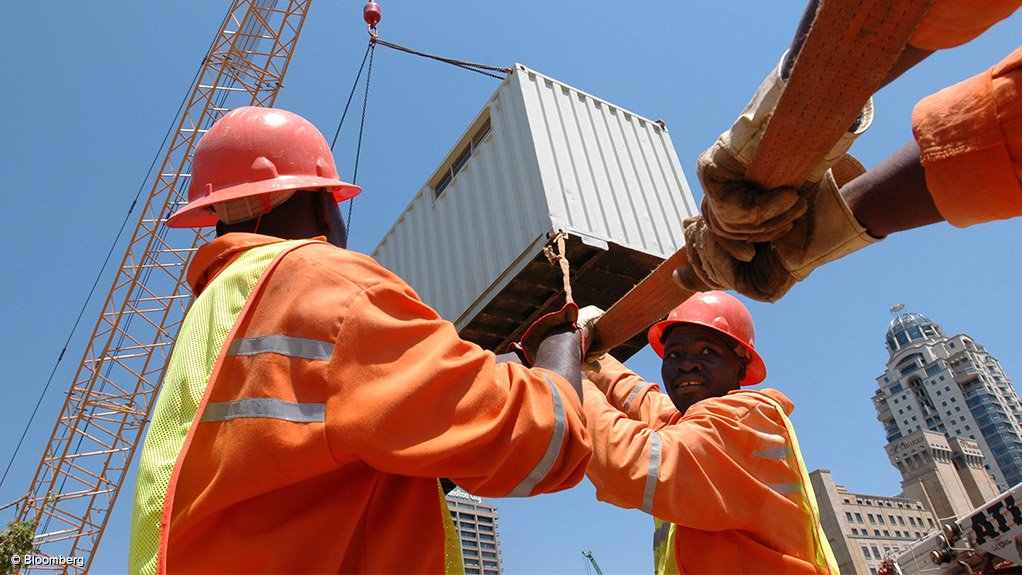Infrastructure investment spending in South Africa had increased and was being taken seriously as Africa was receiving a growing share of foreign direct investment, President Jacob Zuma said on Thursday.
“Infrastructure investment spending has quadrupled, exports have increased and Africa is receiving a growing share of foreign direct investment… These positive trends come on the back of improved governance and a much sounder approach to macroeconomic management in our continent. We need to sustain these trends and deepen them,” Zuma said in a statement.
“With solid and efficient infrastructure, Africa can without doubt reach the much sought after and almost magical seven percent growth rate per annum — a good starting point for Africa. Infrastructure is the way to go towards sustainable development. Africa is on the right track.”
Zuma said it was not surprising that infrastructure development had taken centre stage at the World Economic Forum on Africa that met in Cape Town from June 3 to 5.
He said regional integration was the key and infrastructure development was a catalyst for economic development on the continent.
The Presidency said Zuma was looking forward to a “fruitful discussion” of the progress made in implementing the African infrastructure development programme during the meeting of the 33rd New Partnership for Africa’s Development (NEPAD) Heads of State and Government Orientation Committee (HSGOC), on Saturday.
Zuma chaired the Presidential Infrastructure Championing Initiative (PICI) which reported to the HSGOC. The PICI aimed to facilitate continuous dialogue and work to boost infrastructure development, the presidency said in a statement.
South Africa was given the task of coordinating the North-South corridor which focused on road and rail.
“The initiative has served to link Heads of State and Government to specific infrastructure corridors to ensure strategic political leadership in the championing of cross-border infrastructure projects. The PICI is primarily tasked with bringing visibility to the infrastructure projects, facilitate the unblocking of bottlenecks and any political impasse, provide leadership in resource mobilisation and subsequently ensure speedy implementation,” the presidency said.
Zuma said that infrastructure development was taken seriously in South Africa and work in all provinces and municipal metros was coordinated through the Presidential Infrastructure Coordinating Commission (PICC) led by him.
“Infrastructure development is one of our key job drivers together with tourism, manufacturing, mining and beneficiation, the green and blue economies and agriculture,” Zuma said.
“We are refurbishing and building new schools, clinics and hospitals, we are building three universities and 12 training and vocational education colleges, we are constructing and improving rail, roads, ports, broadband, roads, dams and power stations. What we are doing in the country dovetails with the continental infrastructure programme.”
Zuma said it was important to also invest in national infrastructure, in addition to regional infrastructure and that all the projects should unlock the economic potential of the continent and provide development opportunities for communities, cities and regions.
The North-South Corridor was a multi-modal and multi-dimensional infrastructure corridor that included road, rail, border posts, bridges, ports, energy and other related infrastructure. The corridor passes through 12 countries – Tanzania, Congo, Malawi, Zimbabwe, South Africa, Zambia, Botswana, Mozambique, Kenya, Ethiopia, Sudan and Egypt.
The roll out of the works on the Optic Fibre cable from Algeria via Niger to Nigeria, had already been set and plans for the Dakar-Ndjamena-Djibouti Road/Rail-Senegal was also in the pipeline, the presidency said. It is expected that the project implementation phase would start before 2018.
The execution of contracts for the early gas phase on the Nigeria-Algeria Gas Pipeline, known as the Trans-Saharan Gas Pipeline, was also in progress. The construction of the road or rail bridge for Kinshasa to Brazzaville was expected to be completed by 2025.
Zuma said to alleviate pressures at Beit Bridge, South Africa and Zimbabwe had committed to improving operations at the border post.
EMAIL THIS ARTICLE SAVE THIS ARTICLE
To subscribe email subscriptions@creamermedia.co.za or click here
To advertise email advertising@creamermedia.co.za or click here











